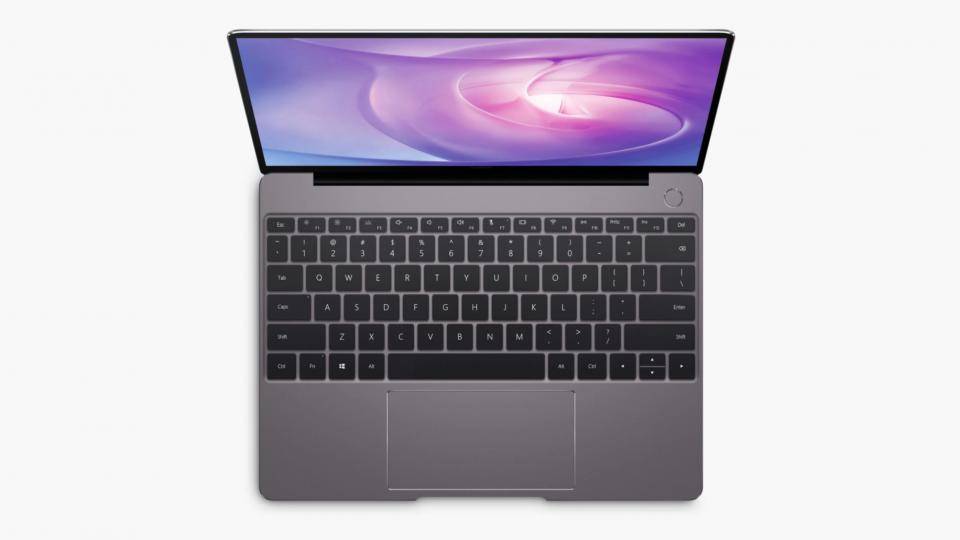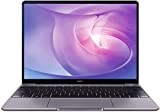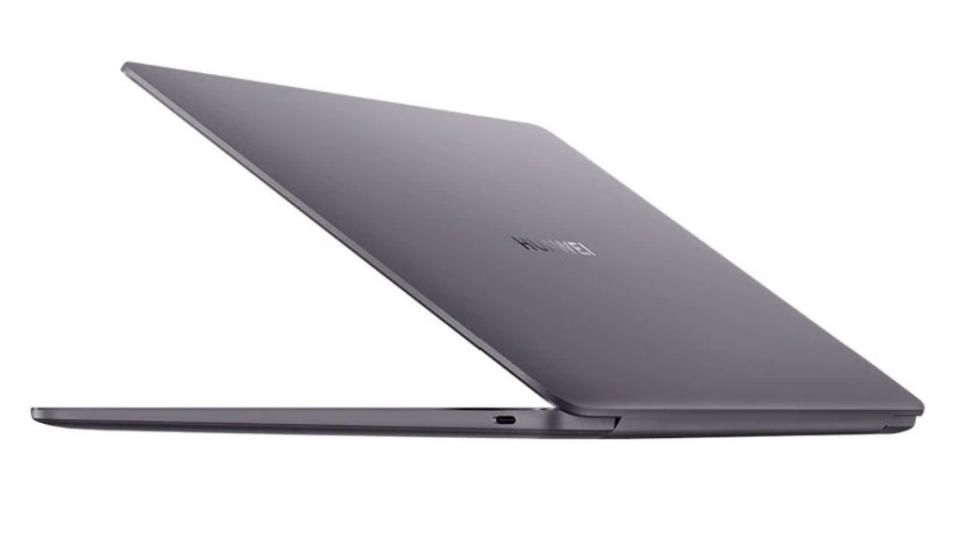The Huawei MateBook 13 line epitomises a recent trend in laptop manufacturing. That trend involves imitating with frightening accuracy the design of Apple’s beloved MacBook Pro, and then adding high-end innards, a capable display and – crucially – a relatively low price tag.
This year’s MateBook 13 bucks the trend a little, however. With prices starting at £1,199, Huawei’s new ultraportable is starting to edge toward its competitors; and although the specs remain undeniably impressive, we’re not totally convinced that the MateBook 13 still makes such a tempting proposition.
Buy now from Amazon
What you need to know
If this laptop was a boxer, it would be short, lean and wiry. It packs a lot of power, but that’s only obvious when you pitch it into battle. The muscle comes courtesy of Intel’s tenth-generation Core i7-10510U processor, and it’s got all the right components in its corner thanks to discrete Nvidia graphics, a fast M.2 SSD and a tasty 16GB of RAM.

Considering the MateBook’s slight frame, that’s quite a lineup. While most 13in laptops are more than 300mm wide, it measures 286mm. It’s also a slim 14.9mm.
READ NEXT: Samsung Galaxy Book Ion review
How well does it perform?
Huawei still finds room for one of the best cooling systems I’ve seen in an ultraportable, helping to make this one of the fastest laptops we’ve tested with a Core i7-10510U. Unlike similarly specced laptops, the MateBook 13 was able to step up the clock speed for extended periods, hurtling along at between 4GHz and 4.8GHz for several minutes. The downside is fan noise, but this appears during tough tasks rather than general use.
Huawei also makes more of the GeForce MX250 graphics, which sit a notch above Intel and AMD’s integrated offerings. For example, Metro: Last Light returned a 44.9fps average at 1080p and Dirt: Showdown 89.6fps. This extra horsepower means you can enjoy many games at the screen’s resolution of 2,160 x 1,440.

What’s the display like?
As mental arithmeticians will have spotted, that translates into a 3:2 aspect ratio, rather than the 16:9 of most screens. The extra pixels also means more density than a Full HD (1,920 x 1,080) panel, which in turn makes it easier to view two windows side by side on the screen. There’s even enough colour accuracy for web designers, with 90.4% coverage of the sRGB gamut with an average Delta E of 0.94; not print designers, though, as its Adobe RGB coverage is 62.9%.

Despite a relatively flat 990:1 contrast ratio, don’t be put off if you’re looking for an after-hours entertainment system. It coped well with dark, brooding scenes, and a decent pair of speakers mean you don’t need to plug in headphones. Drums lose something in translation, and you wouldn’t want to listen to heavy rock on it, but the same could be said for most laptop speakers.
READ NEXT: Huawei MateBook 13 (2019) review
What about connectivity?
Aside from a combo 3.5mm jack, the only two physical connectors here are USB-C, with one on either side. Huawei bundles an adapter with HDMI, USB and VGA connectors, but this doesn’t make up for the annoyance that the left USB-C port only supports charging and data transfer, while the right port is for data transfer alone. If you want to connect a monitor, you’ll need to fish out that adapter.
I’m also disappointed to see 802.11ac wireless rather than Wi-Fi 6, with the only good news being for owners of recent Huawei and Honor phones: thanks to Huawei Share, you can tap your phone against the sticker below the keyboard and then quickly share files between phone and laptop.
The unfortunate side effect of this is the Huawei Share sticker itself, which spoils this laptop’s minimalist lines. You can remove it, but Share will no longer work. A huge trackpad sits to the left, and it’s matched by a backlit keyboard with large keys. It isn’t my favourite to type on, with little feedback, but it’s quiet.
Huawei builds a fingerprint reader into the power button, but note that the webcam squeezed into the top bezel doesn’t support Windows Hello. It takes terrible photos, but its video is passable for Zoom.
Should I buy the Huawei MateBook 13 (2020)?
Should you buy the MateBook 13? It certainly excels for speed, and Huawei Share sticker aside it looks great. That said, if you’re paying this much you should demand a better keyboard and USB-C ports that actually work like everyone else’s. It’s a nice laptop, but it lacks the killer punch.











